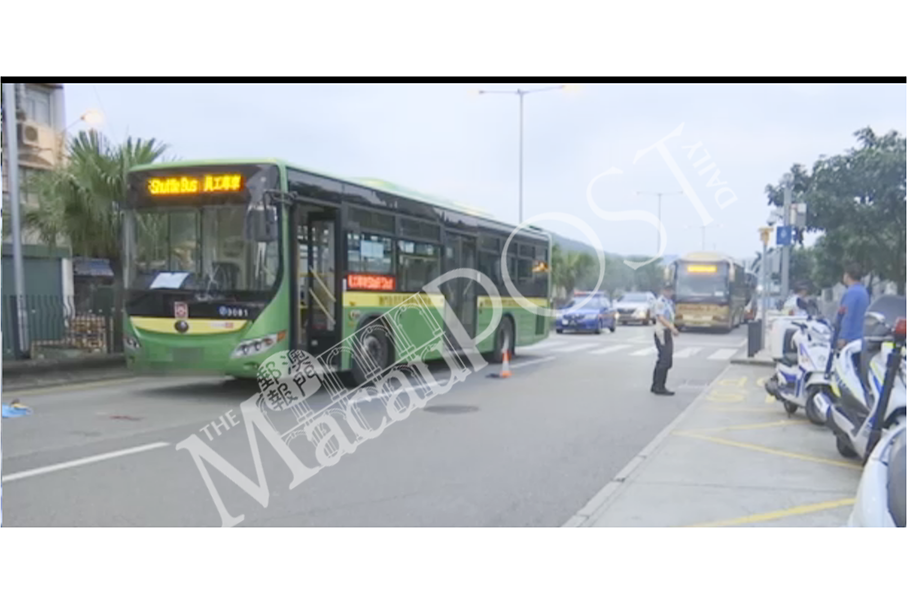The Macau government announced yesterday that local residents studying outside Macau will enjoy a 50-percent discount on the fees for undergoing COVID-19 nucleic acid tests (NATs) during their hotel quarantine period after their return to Macau.
Leong Iek Hou, who heads the Communicable Disease Prevention and Control Division of the Health Bureau (SSM), made the announcement during yesterday’s regular press conference by the Novel Coronavirus Response and Coordination Centre.
The Macau government announced last week that from May 8 all those departing for Macau who are required to undergo hotel quarantine upon arrival here must pay for all COVID-19 nucleic acid tests (NATs) that they are required to undergo during their hotel quarantine period.
Currently, while all those undergoing COVID-19 medical observation at a quarantine hotel have to pay for their stay, they are not charged for any of the nucleic acid tests that they are required to undergo during their quarantine period.
Currently, a stay for COVID-19 medical observation at quarantine hotels costs at least 400 patacas per day. The price varies among different types of the city’s quarantine hotels.
Only Macau residents meeting certain criteria can apply for an exemption from paying for their first-time stay for COVID-19 medical observation at a quarantine hotel.
Currently, those arriving in Macau from Hong Kong, Taiwan or foreign countries must undergo 14 days of hotel quarantine, while those arriving from areas affected by COVID-19 in the mainland are required to undergo hotel quarantine for a period of between 7 and 14 days.
Last week’s announcement noted that nucleic acid tests carried out for those undergoing hotel quarantine are currently conducted by a private testing institution commissioned by the Health Bureau (SSM). The announcement said that as staff members of the testing institution have to collect swabs on-site from those undergoing hotel quarantine, each nucleic acid test costs 250 patacas.
Consequently, last week’s announcement said, those arriving from Hong Kong, Taiwan or foreign countries, who are required to undergo eight nucleic acid tests during their hotel quarantine period, will have to pay a total of 2,000 patacas from May 8 when the NAT charges take effect, while those arriving from areas affected by COVID-19 in the mainland, who are required to undergo five tests during their quarantine period, will have to pay 1,250 patacas.
The NAT charges announced last week mean that the NAT costs will be borne by those undergoing hotel quarantine from May 8, a change from the current situation in which it is the government which bears the cost.
During yesterday’s press conference, Leong underlined that the government has decided to roll out the new measure that will require those undergoing hotel quarantine to pay the NAT costs from May 8 with the aim of making good use of its financial resources.
Nevertheless, Leong said that the private testing institution – which has been commissioned by the Health Bureau to carry out COVID-19 nucleic acid tests for those undergoing hotel quarantine – has told the government that it has decided to offer a 50-percent discount on the NAT charges for local residents studying outside Macau, with the aim of fulfilling its corporate social responsibility by reducing the students’ financial burden.
According to Leong, the 50-percent discount on the NAT charges, which will take effect on May 8, will only cover full-time students who have returned to Macau from the country or region where they are studying, i.e., the place of their study.
The Macau Education and Youth Development Bureau (DSEDJ) will assess and verify whether those enrolled in education institutions outside Macau are full-time students who are eligible for the discount, Leong said.
In addition, Leong also said that compared to those arriving from Hong Kong, Taiwan or foreign countries, those arriving from areas in the mainland that are affected by COVID-19 transmissions are required to undergo a smaller number of nucleic acid tests during their hotel quarantine period because they carry a smaller level of risk of having been infected with COVID-19.
Macau’s quarantine hotels currently comprise three types, namely 1) special hotels, 2) designated hotels, and 3) hotels of the respective arrivals’ choice (aka self-selected hotels).
Currently, Macau has one special quarantine hotel – Treasure Hotel which is located opposite the airport in Taipa – which is currently only earmarked for those arriving from Hong Kong and foreign countries.
Currently, those arriving from all other COVID-19-affected areas, namely Taiwan as well as areas in the mainland that are affected by local COVID-19 cases, can choose between designated hotels or self-selected hotels for their medical observation. Currently, Macau has a designated hotel – Pousada Marina Infante in Cotai, and two self-selected hotels – Regency Art Hotel in Taipa and Grand Coloane Resort.
According to previous news reports, a stay at Pousada Marina Infante or Treasure Hotel costs 400 patacas per day, while a stay at self-selected hotels is more expensive, depending on their respective prices at the time.
Capacity limits relaxed to 75 percent
Meanwhile, Leong also announced that the Health Bureau has decided to raise capacity limits from 50 percent to 75 percent for audiences in the city’s various indoor cultural, recreational and sports activities, as long as every staff member, performer, athlete and member of the audience has been fully vaccinated against COVID-19 at least 14 days prior, or holds a nucleic acid test (NAT) certificate confirming a negative COVID-19 result valid for 48 hours. According to Leong, facilities that do not meet the requirements will continue to be subject to a 50-percent capacity limit.
According to Leong, the relaxation of capacity limits has got off the ground as the Health Bureau has amended its guidelines on the management of collective festive events and recreational and sports activities. The amendments took effect earlier this week.
Leong noted that a 50-percent capacity limit normally means that members of the audience must adhere to social distancing of at least one metre.
Meanwhile, Leong also said yesterday that the government has so far received only four applications for its pilot programme of granting Philippine domestic helpers an exemption from its current entry ban on foreign nationals without a Macau ID card, the application process of which started on Monday. Leong said that three of the four applications have been approved, while the other application has been rejected because the respective domestic helper’s work permit for Macau (aka blue card) has expired.
Meanwhile, Leong also said that for the time being the Macau government will not consider further shortening its hotel quarantine period for arrivals from Hong Kong, Taiwan or foreign countries. Leong underlined that the Macau government must continue with its cautious principle when determining the required length of hotel quarantine for those arriving in Macau.

Leong Iek Hou, who heads the Health Bureau’s (SSM) Communicable Disease Prevention and Control Division, addresses yesterday’s press conference about the city’s COVID-19 situation. Photo: GCS








